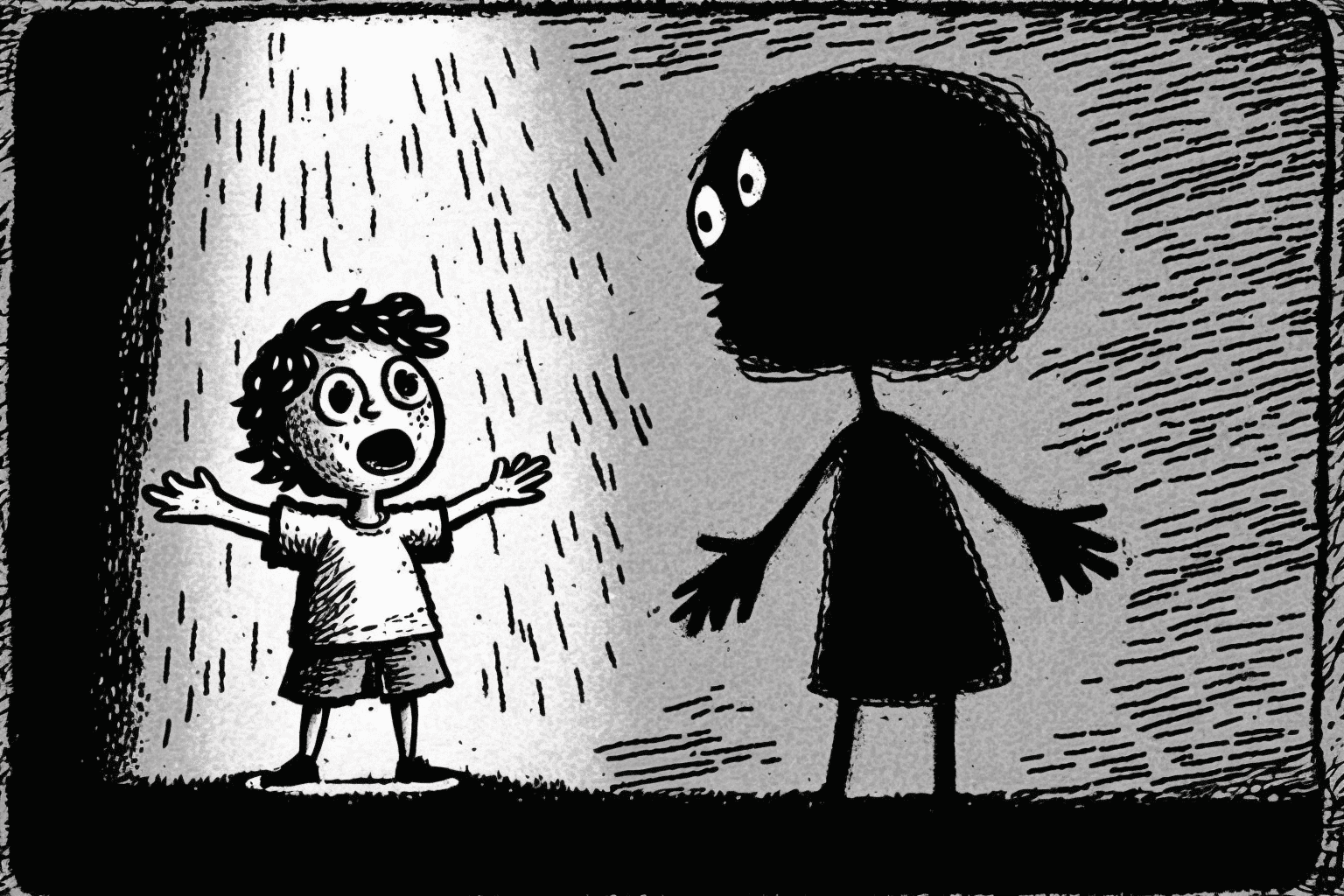Independence can be a scary thing. It’s hard to know what you’re capable of, and it often feels like there’s no support available when things go wrong. But it’s also an important part of growing up.
It’s the ability to make decisions, take care of yourself, and make your own choices. Independence is one of those things that can be really difficult when you’re young and still getting used to being an adult, but it’s also a vital part of life that helps you become more confident and self-sufficient.
Fear of independence can be overcome by gradually exposing oneself to new experiences, challenging negative beliefs, and developing self-confidence by practicing self-care. Learn to enjoy and thrive in your own company, as this will help silence and master your mind toward embracing independence.
Since you need to learn how to do things on your own in order to succeed in life, let’s first look at why you fear being independent.
Understanding the Fear of Independence
Understanding why you fear something is crucial to addressing and overcoming it. This fear can stem from various causes, impacting an individual’s behavior and mental health.
One of its main causes is a deep-rooted attachment style, which may have developed during childhood. Individuals with this fear may have experienced social rejection or emotional neglect, leading to low self-esteem and an overwhelming sense of fear.
This fear can lead to a range of problems in daily life, including indecisiveness, relying excessively on others for validation and support, and experiencing a persistent fear of failure. They may also find it hard when people are setting boundaries. These challenges can hinder personal growth and overall well-being, necessitating active efforts to mastering yourself and this fear.
What Are Its Causes?
Anxiety over independence can be linked to past experiences that have caused fear and start to manifest in the present. It may result from childhood trauma, such as neglect, emotional abuse, or witnessing a traumatic event. These experiences can create a deep-rooted fear of solitude, making it challenging for individuals to become strong and independent and develop healthy relationships.
When you get to the root of this fear, there are several possible reasons why someone might feel this way. For example, they may have had negative experiences in the past that have made them hesitant to take risks or make decisions on their own. They may also feel like they lack the skills or knowledge needed to succeed independently, or they may be worried about what others will think if they fail.
Fear of Being Alone
The fear of being alone can significantly impact an individual’s ability to become independent. It can lead to a constant reliance on others for emotional support and validation, making it difficult to break free from codependent behavior. This fear may also lead to a strong desire to please others (becoming a “people pleaser”), often at the expense of one’s own needs and desires, further perpetuating the fear itself.
Fear of Losing a Loved One
Being afraid of losing someone you love can lead to an excessive need for reassurance and a reluctance to assert oneself, as the fear of being abandoned or losing a significant relationship looms large. Most people who experience this often have pent-up insecurity or self-doubt, especially in romantic relationships where their partner’s career is soaring.
Addressing this fear is crucial to fostering a sense of security and autonomy.
The Impact of Abandonment
Abandonment, whether real or perceived, can deeply affect an individual. It can lead to an intense fear of loss, causing individuals to prioritize their relationships over their own well-being. The fear of being abandoned can hinder personal growth and the ability to develop a healthy level of independence, so confronting this fear is crucial.
Whatever the specific reasons for this fear, it’s important to remember that independence is not something to be afraid of. In fact, being able to take care of oneself and decide based on one’s own values and beliefs is an important part of personal growth and development.
Recognizing the Symptoms of Fear of Independence
Recognizing this fear’s symptoms can aid in seeking appropriate help and working toward conquering this fear. Individuals who fear independence may exhibit a strong aversion to spending time alone, constantly seeking the presence of a caregiver or family member. Moreover, they may display traits of an avoidant personality disorder, struggle with setting healthy boundaries in relationships, and spend a lot of time with others than normal.
Codependent Behavior vs. Interdependence

Individuals with this kind of fear may exhibit codependent tendencies, relying heavily on others for emotional support and validation. Codependent behavior could hinder personal growth and maintain an irrational fear of isolation or facing challenges independently. Recognizing and addressing these behavior patterns is essential in overcoming the fear.
On the other hand, interdependence plays a crucial role in triumphing over fear. Unlike codependent relationships, building healthy, interdependent relationships allows individuals to balance independence with emotional connection, fostering a sense of security and support without compromising their independence. Here, you recognize that you can rely on others and bond with people in a meaningful way without losing your sense of autonomy.
How Do I Overcome My Fear of Independence?
Addressing the underlying issues like childhood trauma or a fear of losing a loved one could be the key to defeating this fear. Seeking the help of a psychologist or therapist may offer valuable insights and coping mechanisms toward independence and emotional well-being.
Rising above the fear is a process that everyone has to go through, and there are plenty of ways for you to do so.
Here are some tips to overcome this fear.
Recognize your fear and accept it.
The first step is always the hardest: acknowledging its presence and seeking professional help, such as a mental health professional. Research suggests that therapy may provide the necessary tools and support, empowering individuals to build healthy, independent lifestyles while fostering meaningful relationships.
This means acknowledging that you are afraid and allowing yourself to feel that fear without trying to ignore it or push it away. It’s okay to feel scared, and accepting that fear can help you better understand and manage it.
By recognizing and accepting your fear, you can take steps to address it and become more comfortable with independence. Remember that facing your fear is a process, and it’s important to be patient and kind to yourself as you work through it.
Set small, achievable goals and focus on the progress you make.
This means breaking down bigger tasks into manageable ones and celebrating each step you take toward your goal. Doing so can positively impact your self-image; you’ll build confidence and resistance to stressful situations. Achieving goals, no matter how small, will prove to yourself that you’re capable of being independent, whether physical or emotional independence. Keep in mind that progress, no matter how small, is still progress, and that’s something to feel good about.
Surround yourself with positive role models and supportive individuals.
Surrounding yourself with the right people means building a support network around you to encourage and inspire you to be independent. These individuals can help you build self-confidence and provide guidance when needed.
Being around people who have conquered their fears and are in control of their independence can help you learn from their experiences and motivate you to pursue your own goals. It is important to choose role models who align with your values and beliefs, and who will support you in your journey toward independence.
Explore new hobbies or interests to challenge yourself.

This means trying out activities that are outside of your comfort zone and that require you to rely on yourself to learn and improve. By participating in an activity that goes beyond what you normally do, you can build confidence in your own abilities and learn to trust yourself more.
Plus, you might discover a new passion or talent that brings you joy and fulfillment. So, don’t be afraid to try something new and push yourself to grow. New things can help combat depression and anxiety as well.
Embrace mistakes as opportunities for growth and learning.
When we make mistakes, we can learn from them and use that knowledge to do better in the future. Instead of fearing independence because of the possibility of making mistakes, we should approach it with a growth mindset and treat it as a first step toward being a strong independent man (or woman). This is a way of thinking that says failure is not the end, but a learning opportunity. By focusing on what you can learn from your mistakes, you will be less likely to feel discouraged and more likely to try again.
Remember, everyone makes mistakes, and it’s how you respond to them that matters. So, embrace your mistakes and use them as a learning opportunity to get better.
Create a routine or schedule to help you stay organized and focused.
It means setting aside time for important activities, such as work or studying, and planning out your day in advance. This can reduce anxiety and give you a sense of direction and command over yourself, both physically and emotionally.
Keep your schedule realistic and flexible, and be sure to include breaks for self-care and tending to your personal needs. Stick to your routine as much as possible, but don’t be too hard on yourself if you need to make adjustments. With time, you may find that you feel more confident and capable of handling independence.
If you want to develop a solid foundation of creating and sticking to a routine, it’s important to understand the difference between freedom and independence since it will allow you to focus on the things that are most important.
Seek out opportunities for feedback and constructive criticism.
This means actively asking others for their thoughts on your work or decisions, and being open to hearing their opinions. By doing this, you can gain valuable insights that can help you improve and make better choices.
Don’t be afraid to make mistakes or ask for help; it’s all part of the learning process. And remember, feedback is a tool that can help you grow and become more confident in your abilities. Learning to accept it is one of the signs of emotional independence.
Take time to celebrate your independence and accomplishments.

This means recognizing and enjoying the things you can do on your own and the things you have achieved. It can be easy to focus on what you can’t do or what you haven’t done yet, but taking time to appreciate yourself can boost your confidence and make you feel more comfortable with independence. The mere sensation of a win is usually more than enough motivation for people to keep trying.
So, take a moment to pat yourself on the back and enjoy your freedom!
Don’t sweat the small, insignificant things.
It’s important not to get hung up on small and insignificant things. This means that instead of worrying about every little detail, it’s better to focus on the bigger picture and take things one step at a time.
By doing this, you’ll be able to avoid feeling overwhelmed and anxious, and you’ll be more likely to make progress toward your goals. Small things may seem important at the moment, but they’re usually not worth getting worked up over in the long run.
Keep a gratitude journal to cultivate a sense of appreciation and self-worth.
This involves regularly writing down things that you are grateful for, which can help cultivate a sense of appreciation and self-worth. By focusing on the positive aspects of your life, you may develop a skill to reframe your thoughts, shifting your mindset away from fear and toward gratitude.
This practice can also help you recognize your own strengths and accomplishments, which can increase your confidence in your ability to handle challenges independently. Give it a try and see how it can help shift your mindset toward a more positive outlook on life.
Challenge negative self-talk and replace it with positive affirmations.
Challenging negative self-talk and replacing it with positive affirmations means changing the way you talk to yourself when you feel afraid of being independent. Instead of telling yourself negative things like “I can’t do this,” you can say positive things like “I am capable and strong.”
By changing your thoughts, you can change your feelings and attitude. This can make it harder to doubt yourself and help you feel more confident and less fearful when facing independence. This can take a bit of self-discipline to make a habit, but keep at it consistently and you’ll get there!
Remember that independence is a process, and it’s okay to take things at your own pace.
Being your own person doesn’t happen overnight. It takes time and effort to learn new skills and gain confidence. It’s important to go at a pace that feels comfortable for you. Don’t rush into things or compare yourself to others. Everyone moves at their own speed, and that’s okay. Just keep taking steps toward your goals, and you’ll get there eventually.
Conclusion
If you are feeling scared about being independent, remember that it’s very possible to vanquish those fears.
Remember that everyone feels this way sometimes, and it’s okay to ask for help. Take small steps toward independence, like trying new things, taking action, and making your own decisions. Don’t be too hard on yourself, and celebrate your progress along the way.
The key takeaway is to embrace the opportunities that come with independence and trust in yourself to handle any challenges that may arise. With patience and persistence, you can work to overcome your fears and achieve a fulfilling life of independence.









